50 years after the 1973 Arab-Israeli war (6-25 October), the escalation of violence between Palestinians and Israelis is on the rise again. On 7 October 2023 Hamas launched a resistance operation against the Israeli occupation, which triggered a violent military response by the Israeli government that is resulting in thousands of refugees, wounded and dead.
The events are relayed in the media, leaving almost no one indifferent. One might ask whether impartiality is possible in the broadcasting of an event that has a long historical legacy. Without rationality and historical objectivity, it is impossible to understand any kind of international phenomenon. Even more so in the case of the Arab-Israeli conflict, whose history goes back more than 100 years.
So, how can we understand the current Palestinian situation with historical objectivity?
This was Palestine in 1946 and in 2015, what has happened in that period of time?
Throughout the 18th century, Jewish communities in Europe suffered increasing discrimination and persecution, and many Jews were forced to migrate. No European or Western country was willing to integrate this population, so the great empires of the time began to redirect them to other territories under their dominion, as in the case of the Palestinian territory, which was then under British rule.
Without rationality and historical objectivity, it is impossible to understand any kind of international phenomenon.
The first Jews who arrived in Palestine had no intention of building a nation-state, but it was one of the few territories to which they were allowed access. These Jews, who came from Europe, brought with them European ideas, strongly linked to nationalism. Thus, Zionism [1] began to be built, as a movement for the configuration of a Jewish state, which, for the first time, considered the idea of a return to a Jewish nation.
The Zionist ideology
Zionist ideas were given substance in the Balfour Declaration (1917), a letter from the British Foreign Secretary to the Rothschild family – one of the most influential families in the financial world in the 19th century and deeply involved in Zionism – which asserted the British agreement to the formation of a Jewish state.
The events of the First and Second World Wars dramatized the situation of Jews and, at the end of the Second World War, the international community was obliged to respond to the worrying reality. The solution was found in the United Nations Partition Plan (1947), which gave 55% of Palestinian territory to the Zionists.
From the beginning, the Palestinian population did not agree with this solution. However, this did not seem to matter because in 1948 the foundation of Israel was proclaimed on Palestinian territory. This triggered the Arab-Israeli war or Nakba -meaning catastrophe- which resulted in the expulsion of Palestinians from their homes, the murder of thousands of people and the destruction of hundreds of Palestinian villages.
Since then, the Palestinian population has focused on resisting the Israeli occupation, while the Israeli government has not only continued to seize more and more Palestinian land, but has also expelled the local population and blocked their return, marginalizing and discriminating against them every day, attacking and torturing the resistance and killing thousands upon thousands of people.
In 1967, in the Six Day War or Naksa -meaning defeat- the Israeli government added to itself the Sinai Peninsula, the Gaza Strip, the West Bank, the Golan Heights and part of East Jerusalem, increasing its territory by 23% since 1948.
The illegality of the Israeli occupation of Palestine is recognized by the United Nations, but the international community lives and acts without considering this reality.
In 1973 another war took place, the Yom Kippur or Ramadan War, to which this text refers at the beginning because of the 50th anniversary of the event. The war was led by Egypt and Syria to recover the Sinai and the Golan Heights, and was the first time that an Arab country recognized the Israeli governorate as an independent state (Camp David Accords with Egypt in 1978). This event marked the beginning of the end of Arab unity against the Zionist project, as well as the normalization of a situation of colonialism and imperialism in Palestine.
The State of Israel
Thereafter, more and more countries in the international community recognized Israel as a state, de facto or de jure. Without this international support, the Israeli government would not have increased its military technology and power as it has, and is now in the top 20 most powerful armies in the world (GFP, 2023). In addition, a flow of economic transfers and agreements of various kinds with the Israeli government continues throughout the world, especially in the West. This is despite the existence of numerous international resolutions [2] condemning the illegal Israeli occupation and considering Palestine as an occupied territory. The illegality of the Israeli occupation of Palestine is recognized by the United Nations, but the international community lives and acts without considering this reality.
Israeli government has not only continued to seize more and more Palestinian land, but has also expelled the local population.
Nevertheless, the recent attacks by Hamas show a Palestinian resistance that has not yet tired of fighting for its rights, a resistance that remains alive despite the attempts of Zionist imperialism and Israeli violence to silence the Palestinian people. It is worth reflecting on the use of violence, on the question of who can use it and when it is legitimate. In recent days, the Western media have announced the Hamas attack, emphasizing the horror of terrorist violence. But where do we hear about systemic Israeli violence over the past 75 years? The critique of violence is not so much about the use or non-use of violence, for in the end all powers, including today’s Western democratic states, have been built on a historical past of war and violence. Rather, the criticism revolves around who uses this violence and to what ends. For the West, when violence pursues an end that is in its interest, it is legitimate, while if it takes the form of terrorism or resistance against its interests, it is criminalized.
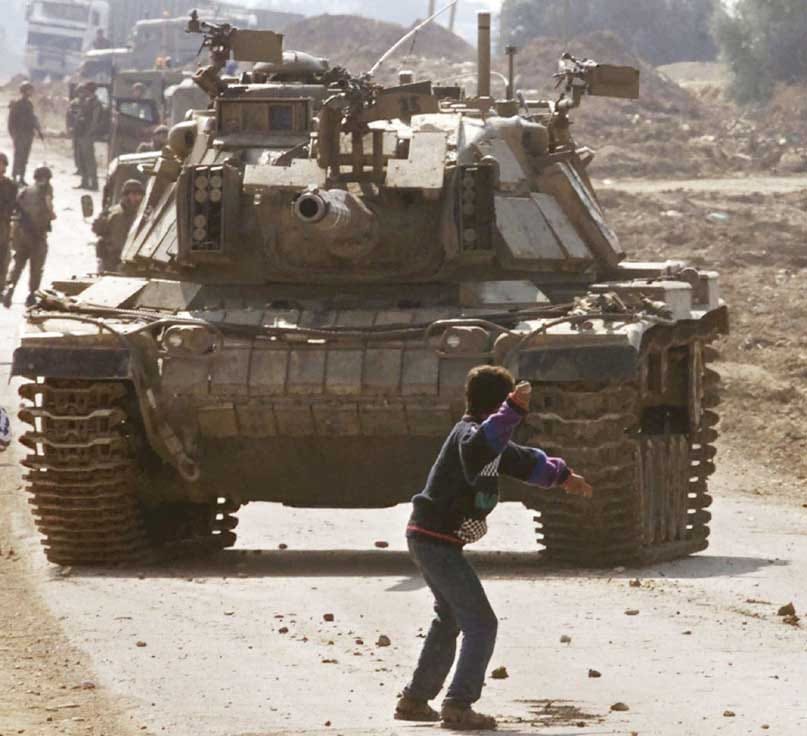
Faris Odeh tirando una piedra a un tanque israelí durante la Segunda Intifada (2000), fallecido 10 días después por las fuerzas de seguridad israelíes.
Erasing Palestinian History
It is not a question of justifying any kind of violence, but rather, as mentioned at the beginning, of trying to understand the Palestinian situation from a historical perspective. From there, it would not be fair to erase Palestinian history: to forget that it was an Anglo-French coalition that imposed the borders of Palestine in order to normalize the colonization of the 19th century, that it was the Palestinian territory that welcomed the Jewish population fleeing European persecution, that Zionist ideology draws on 19th century European nationalist thought, and that the development of Zionism would not have been possible without the support of the international community.
It would also be unfair to forget the 75 years of violence in the territory, the demolition of Palestinian homes, the forced exile, the underdevelopment and precariousness, as well as the continuous mistreatment and murder at the hands of the Israeli governmental system, which is deliberately trying to erase the history of Palestine and to emerge as a fully-fledged independent state.
In this situation, it is worth tirelessly recalling the foundations on which the “State of Israel” was built, reflecting on its colonial nature, challenging its territorial expansion on the basis of Palestinian extermination and ultimately questioning the “natural” existence it claims to have today.
“We are part of a history, and history is obviously a state of past events that have ended, except for us; for us it is a continuous past that never ends. We communicate with you from it as a present that should not be your future. Our time is different from yours, because here time does not move on the axis of past, present and future. We have no control over our future, and our case is quite similar to that of all Arab peoples”
Waled Daqqa. Parallel time.
Cited in the TFM of Judit Rodríguez Fernández (2023)
Ainara García Sánchez
Notes
[1] Do not confuse Zionism with Judaism. The Jewish religion is different from the nationalist movement that advocates the building of an independent state that claims to represent the Jews.
[2] Res.242 of 1967, Res.252 of 1968, Res.267 of 1969, Res.338 of 1973, Res.465 of 1980, Res.1397 of 2002, Res.1515 of 2003, Res.1850 of 2008, Res.1860 of 2009, Res.2334 of 2016. For more information, please visit: https://www.un.org/unispal/es/data-collection/general-assembly/
References
Al-Shaikh, A. (2021) “The parallel human: Walid Daqqah on the 1948 Palestinian political prisoners”. Confluences Méditerranée, 117 (2), pp. 73-87.
GFP (2023): “2023 Military Strenghth Ranking”. Available at: https://www.globalfirepower.com/countries-listing.php [Accessed 24 October 2023].
Rodríguez Fernández, J. (2023): “Sobre el carácter performativo de Nakba en el pensamiento último de Edward Said”, Master’s thesis, Autonomous University of Madrid, Madrid.

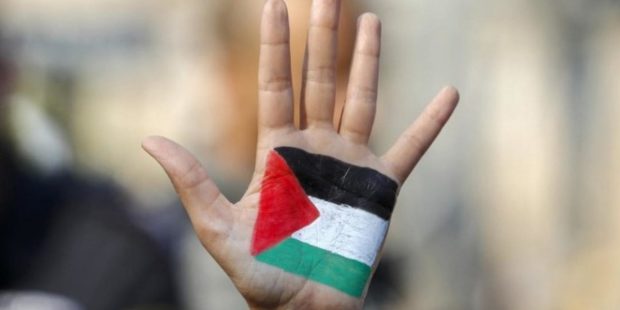
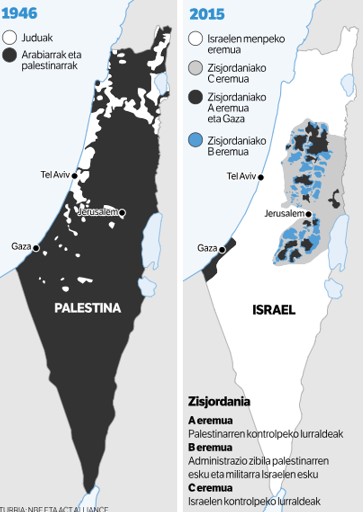
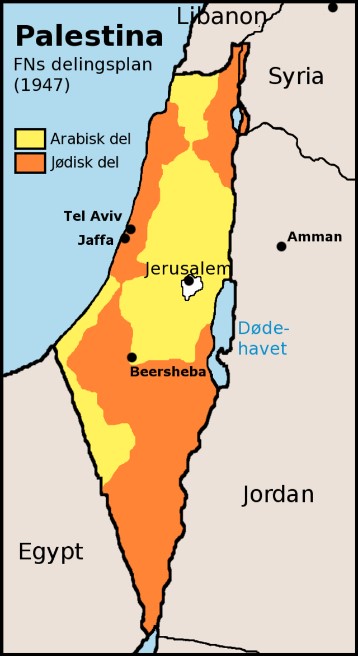
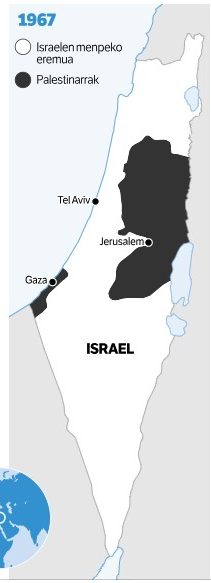

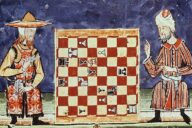
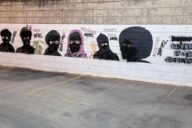










No Comments